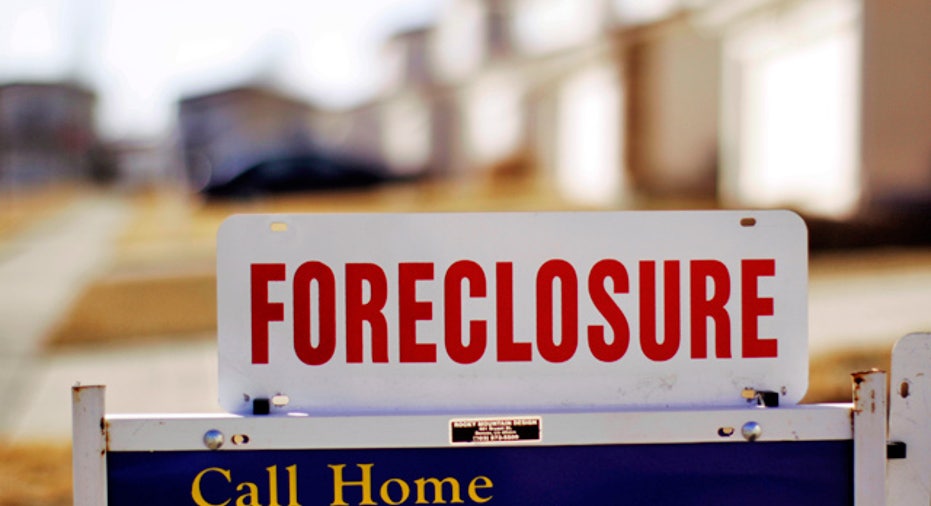What Delays a Mortgage Foreclosure

Six hundred days. That's how long, on average, mortgage loans in the foreclosure process in New York have been delinquent.
That's the longest average in the nation, but not by much, according to LPS Applied Analytics, in Jacksonville, Fla. Loans in foreclosure in Florida, New Jersey, Hawaii and Maine have been delinquent more than 500 days, on average, while home loans in California and Nevada have been delinquent 461 and 427 days, respectively. In the two speediest states, Nebraska and Wyoming, loans in the foreclosure process are delinquent by an average of 358 days.Those statistics raise a question: Why do foreclosures take so long?
The courts
Some states use a judicial process. The causes of delays in judicial foreclosure states include backlogged courts, antiquated systems and judges' schedules, says Shari Olefson, an attorney with Fowler White Boggs in Fort Lauderdale, Fla., and author of "Foreclosure Nation," a book about the subprime mortgage crisis.
In one case, Olefson says, "We went down for the hearing and the judge said, that morning, you are moved to (another) judge, and we went to that judge, and the earliest hearing date he has is April."
The problem may be most severe in Florida, which has the highest number of foreclosures in the country, according to Rick Sharga, senior vice president at RealtyTrac, a foreclosure information service in Irvine, Calif. The backlog in Florida has been so severe that the state has set up separate courts and brought in retired judges to handle foreclosure cases.
Government officials and agencies cause delays through temporary moratoriums, mandatory mediation sessions and loan modification or assistance programs such as the federal Home Affordable Modification Program, or HAMP.
The servicers
Mortgage servicers -- the companies that process monthly payments -- have been equally ill-equipped to handle the large volume of foreclosures. While it may seem counterintuitive, they have reasons to drag their feet:
* Servicers' philosophies and directives are "constantly in flux," Olefson says. One may need to raise cash to meet regulatory guidelines, while another may have too much inventory of unsold real estate on its books. Staid corporate cultures and high staff turnover contribute to slow decision-making.
* Servicers don't want to take on the legal and financial responsibilities of owning more homes. As soon as the foreclosure is completed, the lender "immediately assumes liability and carrying costs," Sharga says. Examples of such costs include property taxes, casualty insurance, repairs and maintenance, and homeowner association dues.
* Lenders are loath to write off losses on unpaid loans.
* Lenders securitized and sold many of their loans to investors, whose objectives may conflict. One investor may want to foreclose quickly and take the cash, Sharga says, while another might want to keep the loan and pressure the borrower to resume the payments. Disagreements lead to process paralysis.
* Lenders may be especially unwilling to negotiate settlements with borrowers who own expensive homes and are believed to have fraudulently hidden other assets in offshore bank accounts, Olefson says. "The banks are a lot less likely to settle because their feeling is that (the borrower) has assets somewhere or will have assets," she says.
* A rumor, whether true or not, that the Federal Deposit Insurance Corp. may take over a lender can cause disruptions and delays, Olefson says. Lenders, investors and borrowers alike tend to think they'll get a better loan workout deal if the government agency steps in, but that's a "complete misconception," she says.
The borrowers
Years ago, foreclosures usually were uncontested, but today, homeowners are more likely to hire a foreclosure attorney to stall the outcome, Olefson says.
"Foreclosure used to be a one-sided deal," she says, "but now, we have borrowers' defense counsel out drumming up business."
Bankruptcy and other court filings can delay a foreclosure, but such actions may be costly for the borrower. Default interest, force-placed insurance, property taxes and legal fees can all end up on the borrower's account, and may be subject to a deficiency judgment in some states."Until that summary judgment is issued, and there is a foreclosure sale, the borrower is responsible," Olefson says.
Mortgage borrowers who want to speed up a foreclosure are mostly out of luck. Unless the lender is willing to approve a short sale or accept a deed in lieu of one, the process must move forward along its own long, slow course.



















